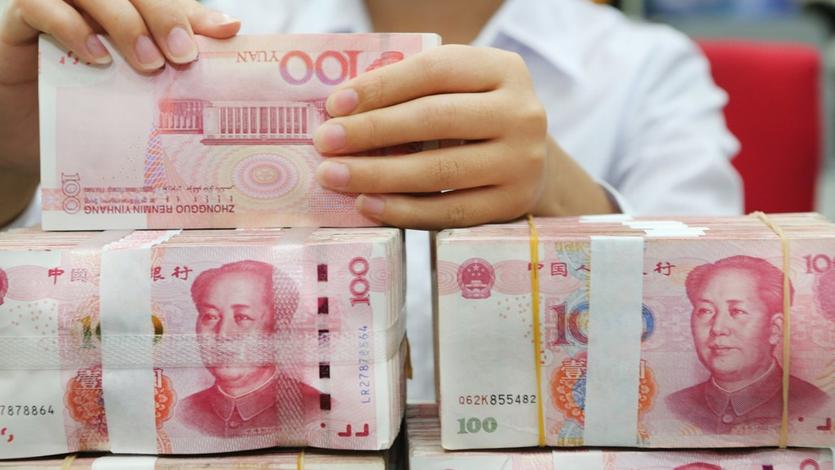 A Chinese clerk counts renminbi yuan banknotes in Nantong, East China's Jiangsu province. (PHOTO / IC)
A Chinese clerk counts renminbi yuan banknotes in Nantong, East China's Jiangsu province. (PHOTO / IC)
The financial results of listed banks in China will improve steadily this year as the overall economy improves and banks make greater efforts to grant credit, experts said.
It is expected that China's listed banks will post a net profit growth of more than 5 percent on average in 2023, and their net interest margins will stabilize at around 2 percent, said Dong Ximiao, chief researcher at Merchants Union Consumer Finance Co.
Credit demand will be in line with the momentum of economic recovery. At the beginning of this year, credit demand may be relatively low but will rise later. Full-year new credit is estimated to reach around 24 trillion yuan ($3.55 trillion), Dong said.
"An increasing number of strong measures should be taken to enhance the stability of corporate loan growth, raise the possibility of a pickup in household loans and promote faster growth of total credit, thus providing strong support to economic and social development," he said.
The People's Bank of China, the central bank, is likely to further lower the reserve requirement ratio for banks and interest rates, such as its benchmark lending rates — especially the five-year loan prime rate — to enhance consumer willingness and capabilities to increase housing consumption, he said.
As of Tuesday, 16 banks in China — four national joint-stock commercial lenders, eight rural commercial lenders and four city commercial lenders — had announced their preliminary earnings estimates for 2022. Fourteen of the banks posted double-digit net profit growth, ranging from 10.52 percent to 29.5 percent. Eight of the banks recorded net profit growth of more than 20 percent.
The net profit growth of listed banks in 2022 could be attributed to relatively fast credit expansion by more than 10 percent and their cost reductions, especially a reduction in risk-related costs, due to strengthened efforts to write off nonperforming loans and set aside adequate allowances for loan impairment losses from 2020 to 2021, said Zeng Gang, director of the Shanghai Institution for Finance & Development.
"Now we see an upturn in China's real economy. It will boost credit extensions in 2023 and banks' interest-earning assets will expand more rapidly than last year," Zeng said.
The narrowing of net interest margins for banks may stabilize this year as many banks have already started lowering their deposit rates while their lending rates may stabilize thanks to the rising demand for funds. In addition, China's banking sector may face lower pressure this year in terms of nonperforming loan formation, which will not be a drag on banks' financial results, he said.
An economic resurgence is key for banks to achieve better performance this year — in other words, banks must step up support for the real economy. Apart from maintaining fairly rapid growth in total credit, China should focus credit extensions on the expansion of domestic demand and consumption to meet the needs for improved housing conditions, new energy vehicles, elderly care services and other types of services. It is also necessary for banks to give stronger support to small businesses and the private sector to ensure stable employment, he said.
Listed banks' net profit growth is expected to repair in 2023 but a divergence among banks will remain. As mortgage loans are repriced, and banks keep foregoing part of their profits to stabilize the real economy, the Chinese banking sector will continue to face downward pressure on net profit margins, said Lou Feipeng, senior economist at Postal Savings Bank of China.
With strengthened efforts to stabilize the economy, China will see accelerated growth of credit demand and the banking sector will ramp up credit extensions to better serve the real economy, Lou said.
Credit extensions to the housing sector and key areas of the Chinese economy, including the manufacturing sector, micro and small enterprises, green development and major projects, will gradually recover while overall credit extensions will increase at the same time. The PBOC will step up support for the banking sector via structural monetary policy instruments to guide the flow of credit funds, Luo said.
jiangxueqing@chinadaily.com.cn


